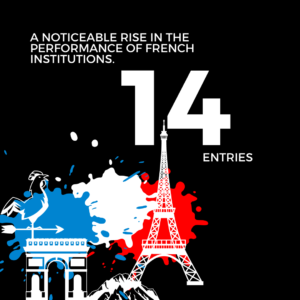The latest THE Young University Rankings rating institutions formed since 1970, were launched on 24th June. with Asian universities performing well and a noticeable rise in the performance of French institutions.
Australia remains a dominant force, with 17 institutions featuring in the top 100, up from 15 last year. France has 14 entries; the UK has five and Hong Kong has four, including the top-ranked Hong Kong University of Science and Technology.
Amongst W100 members, Maastricht University improved its position to 6th in the table, rising from 10th last year.
University Technology Sydney and Aalborg University retained top 25 status, although both fell slightly this year, partly reflecting new entrants to the tables. For example, Université de Paris (11th) was formed in 2019 from the merger of the universities of Paris Diderot, Paris Descartes and Institut de Physique du Globe de Paris.
Australia’s University of Wollongong rose to 26th in the latest table, following on from their recent success of entering the top 200 in the latest QS Rankings. Wollongong was also highlighted by Times Higher Education as a case study in developing a quality brand.
The scores that make up the Young Universities Rankings differ from THE’s main World University Rankings. According to THE, “the weightings are recalibrated to reflect young universities’ missions, with less emphasis on reputational surveys and more on factors such as research productivity, staff-student ratios, institutional income, and doctoral education”.
 The issues around reputation are particularly interesting to review. Research reputation, informed by the THE’s annual survey of academics, makes up 12% of the total score against 18% for the World University Rankings. Teaching reputation makes up 10%, against 15% for the main table.
The issues around reputation are particularly interesting to review. Research reputation, informed by the THE’s annual survey of academics, makes up 12% of the total score against 18% for the World University Rankings. Teaching reputation makes up 10%, against 15% for the main table.
So for those of us focused on reputation, there are a number of points to draw out:
THE are recognizing that reputation is often a lag factor, particularly influenced by history and scale; this is also borne out in their annual Reputation Rankings, in which the top-performing universities have remained constant for many years
- A further lag factor relating to these latest Young University Rankings is that the reputation scores derive from the Academic Reputation Survey that was carried out between November 2018 and March 2019 – so more than a year ago.
- The Young Universities methodology, with only 22% of the total scores based on reputation (compared to 33% for the World University Rankings), may, whilst adjusting for the reputation lag factor have the perverse effect of penalising universities that are strongly focused on growing profile.
- The scores from the latest THE Academic Reputation Survey will be reflected in the 2021 World University Rankings to be launched in early September.
The W100 Network will be running a reputation session at THE’s World Academic Summit where the main world (‘not so young’) rankings are revealed. W100 members will benefit from a free ticket to the virtual event as part of their 20-21 membership package: click here for further details of membership.

